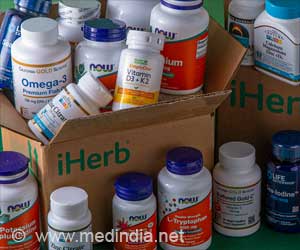Cardiovascular disease has become a major health concern in India. Presently, its increasing prevalence among the youth is becoming a serious concern even for the experts dealing with
Cardiovascular disease has become a major health concern in India. Presently, its increasing prevalence among the youth is becoming a serious concern even for the experts dealing with heart-related problems for decades.
In Punjab, the mortality rate due to heart diseases is comparatively high than recorded in other parts of the country. It has made cardiologists worried and they are searching for a solution to this problem.With 100 million people affected by heart-related diseases, India is set to be the heart disease capital of the world by 2010. And this fact has made country's leading cardiologists worried, as was indicated at the Diagnostic Cardiology Summit at the Hero Dayanand Medical College here.
At Diagnostic Cardiology Summit, organized by the Hero DMC Heart Institute here recently, the cardiologists and experts from the country's leading hospitals deliberated and discussed various diagnostic advancements and future trends.
Dr.Gurpreet Singh, Hero DMC heart institute, said: "Punjabi diet is very rich compared to (the diet) the population living in southern part of the country. It is for this reason that we are witnessing people at young age getting heart attacks."
"We have seen people from Punjab who had migrated to the west had higher prevalence of heart diseases 10-15 years back. Now that same culture has come to our country and today we find the prevalence of this disease has increased manifolds in our country," Singh added.
Presently, latest healthcare facilities are being used to deal with cardiovascular diseases in Punjab.
Advertisement
It helps to diagnose or treat diseases and other abnormalities within the body. Nuclear medicine imaging procedures are non-invasive and relatively painless medical tests.
Advertisement
Dr. Gurpreet Singh, Hero DMC heart institute, said: "The nuclear medicine is a new form of medicine. With this particular investigation we will be able to diagnose patients non-invasively without giving them any pricks."
The deaths due to cardiovascular disease in India are expected to rise from 1.17 million recorded in 1990 to 2.03 million by circa 2010.
Mortality rate is high in Punjab accounting for about 49 percent of all deaths.
Dr. Manmohan Singh, President, Punjab Medical Council, said: "Earlier, the heart related illness were noticed less among rural population. But as urbanization of rural areas is taking place, the urban-rural difference is decreasing and more and more rural people are getting this disease."
India's leading heart specialist, Dr. Naresh Trehan, on this occasion said: "One can do three things, for preventing heart diseases. Eat less fried food, less butter and ghee. Second, exercise daily for around 45 minutes. And third, reduce stress in life. Because of the nature of the work, we have become over stressed. So things like yoga, meditation and entertainment help a person to relax."
Post Graduate Institute of Medical Education and Research in Chandigarh is currently conducting a study on the reasons leading to heart problems in patients up to 35 years of age.
Source-ANI
SRM














